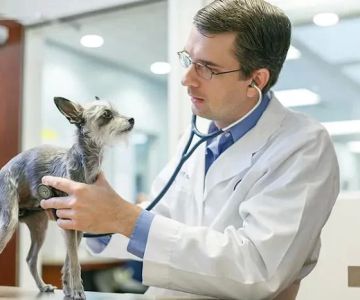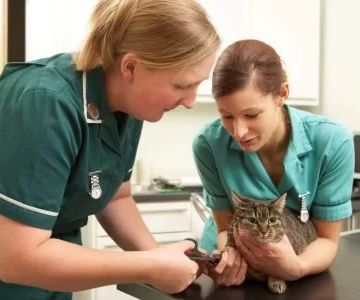- 1. Veterinarian Career Outlook: What to Expect
- 2. Growth in the Veterinary Industry
- 3. Job Market and Demand for Veterinarians
- 4. Specializations and Advanced Career Paths for Veterinarians
- 5. Work-Life Balance and Job Satisfaction in Veterinary Careers
- 6. Real-Life Veterinarian Experiences and Journeys
1. Veterinarian Career Outlook: What to Expect
The outlook for a veterinarian has evolved over the years, with an increasing demand for skilled professionals in the field. As pet ownership grows and the healthcare needs of animals expand, veterinarians are becoming more essential in providing quality care to both pets and wildlife. With advancements in veterinary medicine, there are numerous opportunities for veterinarians to shape the future of animal healthcare, whether in private practice, research, or public health.
However, while the profession is promising, aspiring veterinarians must also face the challenges of long education paths, high debt, and the competitive job market. Understanding the current and future trends in the veterinary profession is crucial for anyone considering this career path. In this article, we’ll explore the current outlook for veterinarians, the factors affecting the job market, and the opportunities that lie ahead in the industry.
2. Growth in the Veterinary Industry
The veterinary industry has experienced significant growth over the past few decades and is projected to continue expanding in the coming years. According to the U.S. Bureau of Labor Statistics, the demand for veterinarians is expected to grow by 17% from 2021 to 2031, much faster than the average for all occupations. This growth is largely driven by the increased pet ownership across all age groups, as well as the rising need for advanced veterinary services such as surgery, oncology, and emergency care.
Advancements in technology and treatment methods have also contributed to the expansion of the industry. With innovations in veterinary science, veterinarians now have access to better diagnostic tools, imaging systems, and medical treatments that allow for more effective care. Additionally, the increasing awareness of animal welfare, as well as the push for more ethical treatment of animals, has led to greater demand for veterinary services in shelters, zoos, and wildlife conservation areas.
3. Job Market and Demand for Veterinarians
The job market for veterinarians remains competitive, particularly in metropolitan areas where the demand for veterinary services is higher. However, the increasing demand for pet care, along with the ongoing need for wildlife conservation efforts, creates ample opportunities for veterinarians in both urban and rural areas. While large animal veterinarians may find it harder to secure positions in urban centers, the growing pet industry continues to create job openings for small animal practitioners in suburban and rural locations.
In addition to private practice, there are numerous other sectors in which veterinarians can work. These include veterinary teaching hospitals, government agencies, pharmaceutical companies, and public health departments. The rise in zoonotic diseases, which are diseases that can be transmitted between animals and humans, has heightened the demand for veterinarians in disease control and public health roles. Veterinarians working in research can also contribute to studies that improve animal health and contribute to advancements in human medicine.
4. Specializations and Advanced Career Paths for Veterinarians
One of the most attractive aspects of a veterinary career is the ability to specialize in various fields. Specializing allows veterinarians to hone their skills in a particular area of interest, providing the opportunity to grow both personally and professionally. Common veterinary specialties include:
- Surgery: Veterinarians specializing in surgery often perform advanced procedures, such as orthopedic surgery, soft tissue surgery, and minimally invasive surgeries.
- Emergency and Critical Care: Emergency veterinarians work in urgent care settings, providing life-saving treatments to animals in critical conditions.
- Internal Medicine: Veterinarians with a focus on internal medicine diagnose and treat diseases affecting the internal organs, such as heart, liver, and kidney diseases.
- Oncology: Oncology specialists work with animals diagnosed with cancer, providing treatment options like chemotherapy, radiation, and palliative care.
- Behavioral Medicine: Veterinarians specializing in behavioral medicine work to diagnose and treat behavioral issues in pets, including anxiety, aggression, and compulsive disorders.
Specializing in one of these fields requires additional training, often through internships, residency programs, and certification. Many veterinarians choose to specialize after gaining several years of experience in general practice, allowing them to explore their interests and deepen their expertise in their chosen field.
5. Work-Life Balance and Job Satisfaction in Veterinary Careers
One of the most important considerations for veterinarians is achieving a balance between work and personal life. Veterinary work can be emotionally and physically demanding, with long hours and the need to be available for emergencies. However, many veterinarians find fulfillment in knowing that their work directly improves the lives of animals and their owners.
Despite the challenges, the veterinary profession offers high levels of job satisfaction, particularly for those who are passionate about animal care. Many veterinarians report that their career provides a sense of purpose, and the opportunity to build lasting relationships with clients is a rewarding aspect of the job. Additionally, some veterinary practices now offer more flexible schedules or part-time opportunities, improving work-life balance for veterinarians who prefer a less demanding routine.
6. Real-Life Veterinarian Experiences and Journeys
Veterinarians from around the world share compelling stories of how they navigated the challenges of the profession and built successful careers. Here are a few examples:
- Dr. Laura’s Specialization in Oncology: Dr. Laura always had a passion for working with pets suffering from cancer. After completing her veterinary degree, she pursued additional training in oncology. Today, she runs a successful veterinary oncology clinic, where she offers cutting-edge treatments and comfort to animals battling cancer.
- Dr. Michael’s Veterinary Emergency Career: Dr. Michael became an emergency veterinarian after realizing his passion for high-pressure situations. He works in a busy emergency clinic where he handles life-threatening situations, and while the hours are long, he finds the work highly rewarding.
These personal stories demonstrate the various paths veterinarians can take within the field and show that the profession, while demanding, can offer immense personal and professional satisfaction.
Whether you're an aspiring veterinarian or an experienced professional, the outlook for a veterinarian is promising. With the right training, dedication, and passion, you can look forward to a fulfilling career in the veterinary field. As the industry continues to grow and evolve, the opportunities for veterinarians remain abundant.











